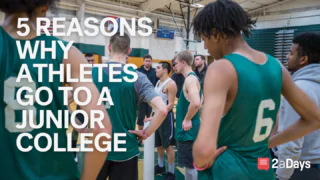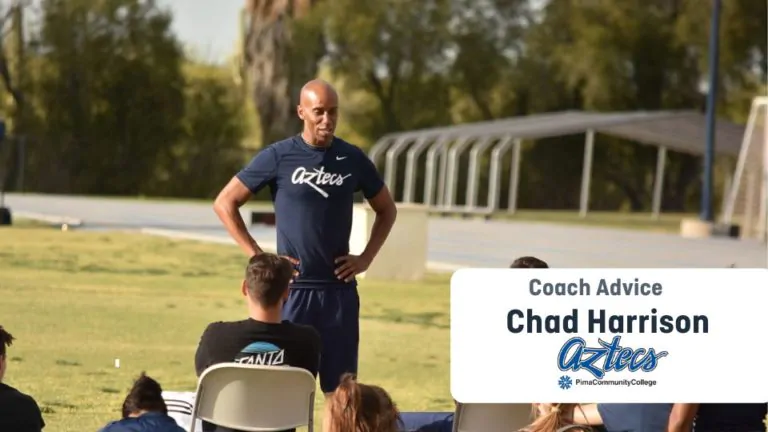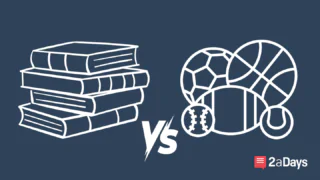Junior college (JUCO) athletes are just as competitive and talented as athletes who attend four-year institutions. However, why do some people look down on going to junior colleges and treat those athletes differently than four-year athletes? Most of the time it is because people don't understand the reasons an athlete has chosen to go the “JUCO Route.” Here are some of the top reasons why athletes go to junior colleges:
1. Academic Ineligibility
Athletes who do not qualify academically for a four-year institution are often forced to go the JUCO route. Some people will go to junior colleges so they can boost their grades and get their Associate's Degree. After they get the degree, they will be full qualifiers and should be eligible to play at most four-year institutions.
2. Cost of Other Schools:
Some athletes are forced to go the JUCO route because they couldn't afford the other schools that were recruiting them. Most junior colleges are relatively inexpensive and if you are an in-state student it will be even cheaper. Playing at a junior college could save them a lot of money, instead of playing four years at a school where they were not on scholarship.
3. Proximity to Home:
Some athletes are not ready to go to a school that is far away. Instead, they may opt to spend time at a junior college that is much closer to home. In some cases, they can still live at home while commuting to the school if it is close enough. By the time they graduate, many feel more mature and ready to leave home by going to a 4-year school further away.
4. It was the Only Offer They Received:
Simple enough, some athletes see that a junior college is the only school actively recruiting them. Their goal is to work as hard as possible so that they can get recruited and gain a scholarship to a 4-year institution. Many JUCO athletes are watched by coaches looking to bring in some experience in all types of showcases.
Related: Rate your Coaches, Facilities, and Campus Visits
5. They Didn't Get the Offers They Were Looking For:
There are times when an athlete has offers from other schools, but they aspire to play at a higher level. Some athletes opt to go to a junior college for two years in an attempt to improve and get noticed by bigger schools. Coaches are constantly looking to recruit JUCO athletes, so the two years in college can help them develop and get more exposure.
There are a number of reasons why an athlete will choose to go to a junior college. It's important to understand that every athlete has their own journey. Going to a Junior College should not be looked down on because it can lead an athlete on the right path for the rest of their life.
Have an idea for a story or a question you need answered? Want to set up an interview with us? Email us at [email protected]
* Originally published on June 13, 2023, by Jason Zielinski







